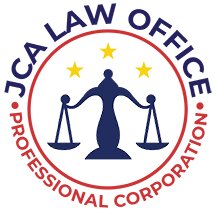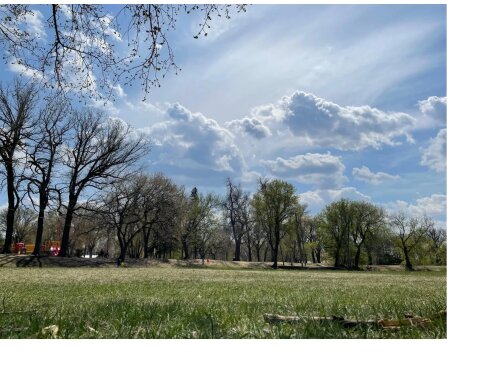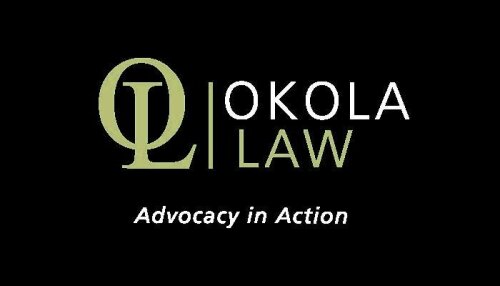Best Guardianship Lawyers in Toronto
Share your needs with us, get contacted by law firms.
Free. Takes 2 min.
List of the best lawyers in Toronto, Canada
About Guardianship Law in Toronto, Canada
Guardianship Law in Toronto, Canada, is a structured set of laws that dictate the terms, conditions, and particulars of guardianship, including who can be a guardian, how the guardianship process works, and most importantly, the rights and responsibilities of a guardian. This law important for those who wish to obtain legal rights to make decisions on behalf of another person, often referred to as the 'ward' or 'incapable person', who does not have the capacity to do so.
Why You May Need a Lawyer
Guardianship laws and processes can be complex, and hence, it may require the assistance of a lawyer. Some common situations where you may need a lawyer includes: when the person in need of a guardian has substantial property or financial holdings that need to be managed, when there is a contentious or conflict-filled situation among family members regarding the guardianship arrangement, or when you are not familiar with the guardianship process and laws in Toronto, Canada. A competent lawyer can help navigate these complexities and provide suitable advice based on their in-depth understanding of the local legislation.
Local Laws Overview
In Toronto, Canada, the primary legislation that governs guardianship is the Substitute Decisions Act. Under this legislation, there are two types of guardianship: Guardianship of Property and Guardianship of the Person. The Guardian of Property is responsible for managing the ward's financial affairs, while the Guardian of the Person takes care of their personal care decisions such as health care and housing. Guardianship can be granted only through a court order or can be requested by the person needing representation, provided they have the mental capacity to understand the implications at that time.
Frequently Asked Questions
1. Who can be a guardian in Toronto?
A guardian should be at least 18 years old, mentally competent and willing to take on a demanding role. Both individuals and trust corporations can be appointed as guardians.
2.What are the responsibilities of a guardian?
The guardians are tasked with managing the personal care or the property of the incapable person. This includes making decisions about health care, housing, and food, or managing financial affairs, depending on the type of guardianship assigned.
3. How to apply for guardianship?
To apply for guardianship, you need to submit an application to the court with all required documents. It's recommended that you seek the help of a lawyer for this process.
4. Can guardianship be contested?
Yes, if a person is unsatisfied with the decision, they can contest the guardianship in court. Legal assistance will be helpful in this scenario.
5. How long does the process take?
The length of the process is case-dependent, but typically it takes several months, from applying to getting appointed as a guardian.
6. Can a ward have more than one guardian?
Yes, a ward can have multiple guardians appointed by the court.
7. What happens if a guardian fails to perform their duties?
If a guardian fails to perform their duties, they can be removed by the court, and a new guardian can be appointed.
8. How can a guardian resign from their duties?
A guardian can resign by submitting a request to the court. The court will then decide on next steps.
9. Can a guardianship order be changed?
Yes, it can be changed if the court agrees to the changes based on the best interest of the ward.
10. Is the guardian compensated for their role?
Typically, guardians are able to take compensation from the ward's assets for time and expenses related to carrying out their duties.
Additional Resources
The Public Guardian and Trustee of Ontario is an important resource that provides services related to guardianship. Additionally, community legal clinics, the Law Society of Ontario, and various non-profit organizations provide valuable resources and support for guardianship matters.
Next Steps
If you need legal assistance in Guardianship Law in Toronto, Canada, start by consulting with a lawyer who is experienced in this area. They can provide an initial consultation to understand your case, guide you through the process, and represent you in court if necessary. Make sure you come prepared with all relevant documentation and questions you have to make the most of this consultation.
Lawzana helps you find the best lawyers and law firms in Toronto through a curated and pre-screened list of qualified legal professionals. Our platform offers rankings and detailed profiles of attorneys and law firms, allowing you to compare based on practice areas, including Guardianship, experience, and client feedback.
Each profile includes a description of the firm's areas of practice, client reviews, team members and partners, year of establishment, spoken languages, office locations, contact information, social media presence, and any published articles or resources. Most firms on our platform speak English and are experienced in both local and international legal matters.
Get a quote from top-rated law firms in Toronto, Canada — quickly, securely, and without unnecessary hassle.
Disclaimer:
The information provided on this page is for general informational purposes only and does not constitute legal advice. While we strive to ensure the accuracy and relevance of the content, legal information may change over time, and interpretations of the law can vary. You should always consult with a qualified legal professional for advice specific to your situation.
We disclaim all liability for actions taken or not taken based on the content of this page. If you believe any information is incorrect or outdated, please contact us, and we will review and update it where appropriate.














